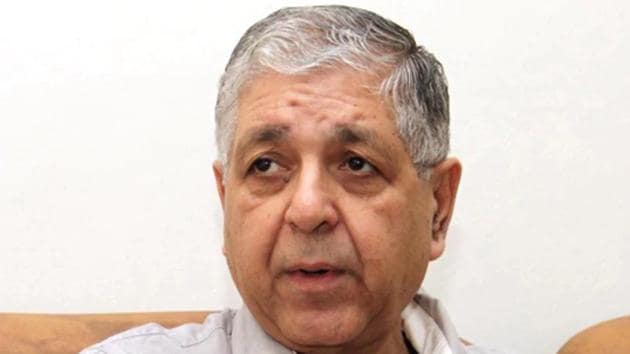Panjab University will turn into Pinjore HMT, warns V-C on financial restrictions
UGC’s full autonomy: The vice-chancellor questions student bodies’ protests over hike in tuition fees, looks forward to possibilities of collaborations with foreign institutions, deciding new courses, off-campus initiatives.
A day after Panjab University (PU) featured in the list of University Grants Commission (UGC) granting full autonomy to higher institutions, the vice-chancellor sounded alarm at the financial condition of the varsity even as he welcomed the status.

“Jobs bhi generate na karo, fees bhi mat badhao aur university bhi zaari rakho Students ki fees se teachers ko salary mat do. Ultimately, jab university HMT Pinjore ban jayegi, phir pata chalega, kya khatam hogaya Chandigarh se” (Generate jobs, but don’t increase the fees, keep on running the university, but don’t pay salaries to teachers from students’ fees, when university becomes HMT Pinjore, then they will know what has been lost from Chandigarh), said PU vice-chancellor, Professor Arun Kumar Grover on Wednesday at the media briefing.
Professor Grover expressed resentment for not being able to increase the tuition fee in reference to the stone pelting violence incident last year and for not generating jobs for poor students after the agitations by the student bodies.
“Tuition fee is not increased here and we increase it, the environment heats up. Student bodies start competing, that they will get it reversed. How much had we increased last year? If we increase the fee from ₹100 to ₹200, how much income we will be able to generate?”
“What is tuition fee? It is a fraction of what you are spending if you are a resident of PU. I had held several meetings with students but they took to violence and brought a bad name instead. Later students objected that how we can pay the salaries to the teachers out of students’ fees. Alright, do not pay the fees!,” Grover said.
Professor Grover said the university needs to be realistic about the total human resource this country generates and in that number what university is adding is a small fraction but that small fraction needs to be of high quality.
The announcement of the autonomy, the V-C said has given a hope to initiate the long-pending foreign tie-ups, including with the Curtin School of Business, Australia, and the Nottingham University.
‘Welcome full autonomy’
The autonomy gives different degrees of freedom in academic and administrative decision making. Professor Grover, said, “In the background of changing India, things are changing. I personally see permission to do something without seeking permission from UGC as a welcome step. “Kuch to dheel di gayi hai.”
He added, “Earlier, we were generating money on our own, we cannot decide the remuneration for somebody on our own. It has to be strictly as per UGC guidelines. We cannot pay more than Rs 1,000 per lecture. If somebody is not UGC qualified, we pay him Rs 800, then the UT administration reduced that amount to Rs 500 even when they have no jurisdiction, prima facie, they have no role in the university’s autonomy.”
“Now we can decide on what remuneration we can give to an outsider, although the insider will be paid the remuneration as per UGC, but if I call somebody from the industry or some other profession, little freedom is given,” he added.
Professor Grover said they are not given any additional money to implement these freedom, but if university can generate this money, it can exercise these options. “There is a limitation no doubt but there is a freedom,” he added.
Long pending foreign tie-ups
The announcement of the autonomy, the V-C said has given a hope to initiate the long-pending foreign tie-ups, including with the Curtin School of Business, Australia, and the Nottingham University. He said that an MBA programme could be initiated with Curtin School where the students pursue half of their education in Chandigarh and half of it in Australia.
“Our possibilities are Australia, British and Canada, whose deputy high commissioners are in the city and with these three countries, we can initiate twinning programmes, although we shall start the programme with a very small number of students, not more than 100,” he said.
New courses, campuses
Professor Grover shared that another domain is to initiate newer programmes on the campus. “Can we conceive a school for the field of medical science? A programme, which is MBBS and MD together on the basis of American schools? Can we start such a programme in Chandigarh, in collaboration with PU, PGI and NIPER? Can we conceive a medical school, in north west of India on the lines of medical schools in America and Canada. This is one of the proposals we have prepared. Fee structure will be different and there will be no exit policy in this six year course,” said V-C.
Liberalisation on adjunct faculty
The V-C talked about bringing to the campus civil servants, people from the corporate sector, hotel management, industry, police officer, municipal councillors or a municipal commissioner, even political people who have served the government, to teach students. “The UGC is wanting to give experience of those professionals to the students, where the students would want to serve after passing out or create such interaction or internships. This is liberalisation of some kind,” he said.





